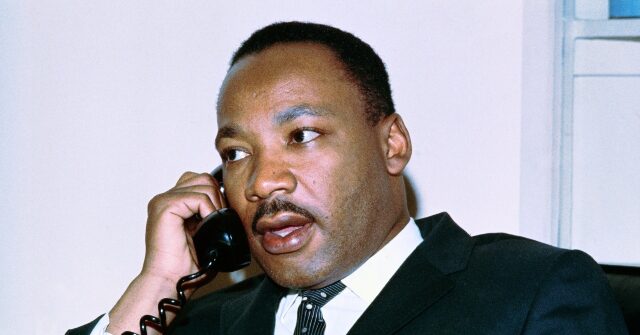OpenAI has shut down depictions of Martin Luther King Jr. in its AI video generation tool Sora after users created “disrespectful” deepfake videos of the civil rights leader.
Bloomberg reports that OpenAI, the prominent artificial intelligence company, announced that it has temporarily halted the ability to generate videos depicting Martin Luther King Jr. using its AI video tool called Sora. The decision comes after the company received complaints from King’s estate regarding disrespectful deepfake videos of the late civil rights activist created by some users.
In a statement posted on social media platform X, formerly known as Twitter, OpenAI explained, “While there are strong free speech interests in depicting historical figures, OpenAI believes public figures and their families should ultimately have control over how their likeness is used.” The company acknowledged that certain users had misused the AI tool to produce inappropriate depictions of Dr. King.
One example of the problematic content was a fake video that circulated online, showing Dr. King swearing during his iconic “I Have a Dream” speech and complaining about beeping smoke alarm detectors. The distasteful manipulation of the historic footage drew criticism and concern. Others mocked the civil rights leader:
In response to the incident, OpenAI has announced that it will allow other high-profile individuals and their representatives to opt out of appearing in videos generated by Sora. The company declined to provide further comments on the matter.
The King estate has not yet publicly responded to OpenAI’s decision or the misuse of Dr. King’s likeness.
This policy change signifies a shift towards a more cautious approach by OpenAI, which had previously taken a relatively liberal stance on depictions of famous figures and intellectual property in its AI-generated content. The company released Sora last year, enabling users to create realistic videos based on text prompts. While the tool opened up new possibilities for AI creativity, it also raised concerns about potential misinformation and inappropriate content.
OpenAI is not alone in facing challenges related to AI-generated depictions of deceased celebrities. Zelda Williams, daughter of the late actor Robin Williams, recently expressed her displeasure with fans sending her AI-generated videos of her father, referring to the content as “TikTok slop.” Bernice King, daughter of Martin Luther King Jr., publicly agreed with Williams’ sentiments on social media.
This is not the first time OpenAI has had to address concerns over its AI-generated voices and likenesses. Last year, the company removed an AI voice named “Sky” from its offerings after actress Scarlett Johansson complained about its uncanny resemblance to her own voice. Johansson had previously declined a request from OpenAI’s CEO, Sam Altman, to provide her voice for the feature.
Read more at Bloomberg here.
Lucas Nolan is a reporter for Breitbart News covering issues of free speech and online censorship.
Read the full article here


